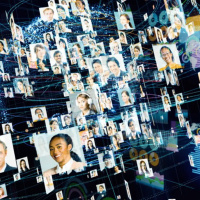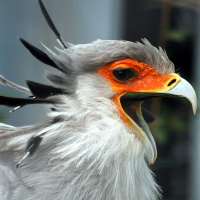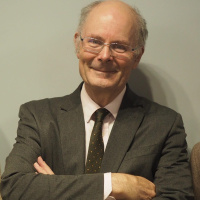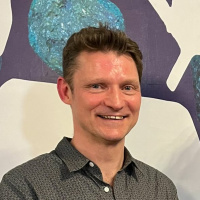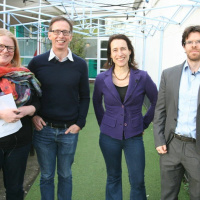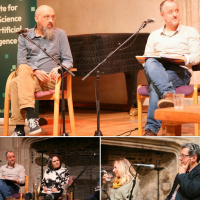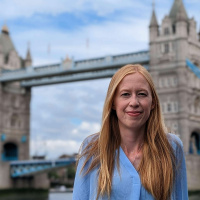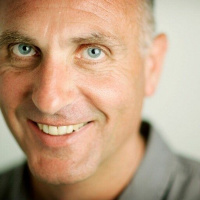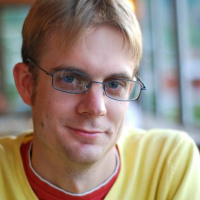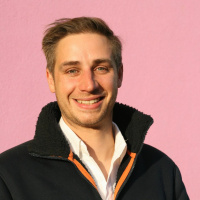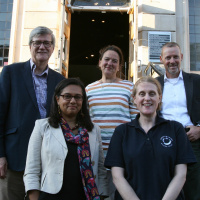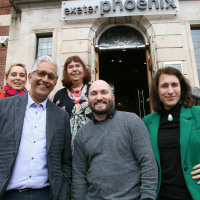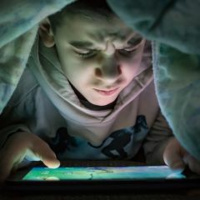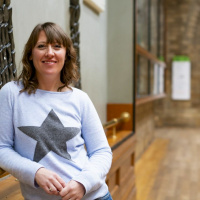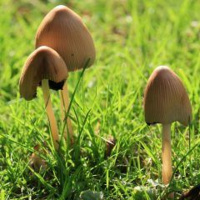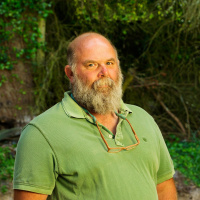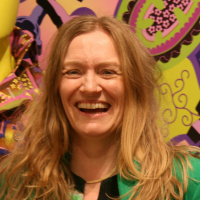Synopsis
Agile Rabbit (www.agile-rabbit.com) is a platform that provides special events for the South-West and beyond to focus on ideas, global affairs and the natural and scientific world. The events are set in contrasting venues across the South-West to provide quirky experiences, which welcome conversation. There is a monthly talk and discussion at Exeter Phoenix, and other special events elsewhere including IntoBodmin and Marine Theatre Lyme Regis. The events include panel discussions, debates, film screenings, and performances. This diversity of experiences sets the tone of Agile Rabbit as inclusive, emphasising our key theme: That cutting edge thinking can be at the centre of everyday life.OriginLapin Agile is a cabaret in Montmartre, Paris. At the turn of the twentieth century artists, thinkers, and scientists would gather to discuss ideas and socialise.
Episodes
-
Can AI be fair?
18/10/2024 Duration: 38minCelebrating Ada Lovelace Day and the pioneering research of women in science, technology, engineering, and mathematics. A discussion with world leading scientists and thinkers on Artificial Intelligence and equality. From benefits to healthcare and the environment, there is a lot that is exciting about AI and its contribution to our society. However, the risks – including algorithmic bias, invasion of privacy, and the power of big business – are well versed. So how can we ensure that data science and AI is working for and not against us? Hear about how ideas from computer and data scientists – particularly women – are empowering diversity, cooperation and prosperity for all. As many of us turn to generative AI to increase productivity at work, how can we be sure that the everyday tools we use are ethical and fair? This event is for The Joint Centre for Excellence in Environmental Intelligence. SPEAKERS JUDY WAJCMAN Principal Investigator for Women in Data Science and AI Alan Turing Institute Judy Wajcm
-
Oddities of the Animal Kingdom | Dr Steven Portugal
26/09/2024 Duration: 40minFrom naked mole rats and their teeth digging skills to kickboxing secretary birds, get ready to get your freak on. Dr. Steve Portugal from the Centre of Ecology, Evolution and Behaviour at the Royal Holloway University of London, has long been interested in the curious and peculiar behaviours of our fellow earthly inhabitants. STEVE PORTUGAL Steve Portugal is a comparative ecophysiologist. The common theme of his work focuses on how animals adapt their behaviour and ecology to the challenges of their environment, within the constraints of their own physiological and anatomical limitations. Such questions are particularly important in the light of global environmental change and exploitation of natural resources, in the emerging field of conservation physiology. From September, Steve will commence his new position as Associate Professor of Animal Behaviour at the University of Oxford and St Hugh’s College.
-
Sir John Curtice | Election Survival Guide
21/06/2024 Duration: 40minThe man behind much meaningful analysis of election statistics visits the South West for an exclusive event with Agile Rabbit. Sir John Curtice is in conversation with former Radio 4 presenter Ritula Shah. Using the latest poll data, Sir John will be sharing potential outcomes and reflecting on the implications for both politicians and the electorate. Sir John famously provides poll analysis on election nights for the BBC and is a regular contributor across the media. 20th June 2024
-
Professor Nathan Lepora | Humans vs Robots
30/04/2024 Duration: 25minNathan Lepora, Professor of Robotics and AI at the University of Bristol, shares his vast knowledge on most recent robotic developments. Professor Lepora is interested in the intersection of artificially embodied intelligence and neuroscience and how, in turn, this manipulates how we perceive our surroundings, learn, and interact with one another. He is the leader of the Dexterous Robotics Group in Bristol Robotics Laboratory, a collaborative research group that investigates and develops dexterous robots with a human-like sense of touch that can intelligently interact with their surroundings. Together with his research group, he has pioneered the use of 3D-printing for easy fabrication of tactile sensors, leading to multiple benefits from open-sourcing the technology to the integration into robot hands and grippers.
-
How safe is Artificial Intelligence?
03/04/2024 Duration: 30minProfessor Sabina Leonelli, Professor Seán Ó hÉigeartaigh, Professor Anthony King, Rebecca Kesby. Whether it’s a deepfake of Taylor Swift or Rishi Sunak’s summit at Bletchley Park, news about Artificial Intelligence seems unescapable. And it’s accelerating at an unprecedented rate. With a group of world experts, we’re getting behind the headlines to look at what’s really happening in AI safety, particularly the role that law and politics play in providing regulation and reassurance. The AI landscape is complex, ranging from positive impacts such as healthcare advances to those more negative that affect real-life opportunities and services. So, what are the risks of AI as well as the transformative opportunities? This event was part of AI UK Fringe and in partnership with the University of Exeter’s Institute for Data Science and Artificial Intelligence and the Alan Turing Institute.
-
Environmental Intelligence: Can AI change the world?
03/04/2024 Duration: 57minProfessor Penelope Endersby FREng, Hon FInstP, Professor Hywel Williams, George Monbiot, Professor Seth Bullock, Professor Sarah Hartley, James Coomarasamy Artificial Intelligence enables us to track environmental footprints, extreme weather events, carbon emissions, and biodiversity loss. But can it help us to find solutions to tackle some of our society’s most pressing environmental issues? AI has a staggering carbon footprint itself – but can it help us find solutions in a rapidly changing climate? The UK’s leading data scientists and environmental thinkers joined us for this special fringe event as part of AI UK Fringe, at Dartington Hall. We heard about how scientists and companies focus their efforts and research on how AI can support communities to navigate their water supply, what the technology can tell us about our changing weather, and whether it can increase harvest globally. This AI UK Fringe panel was for the University of Exeter's Institute for Data Science and Artificial Intelligence and in
-
Professor Tessa Baker | Sounds of Spacetime
10/03/2024 Duration: 30minWhat fills the space between stars in our universe? Pure nothingness? After sparking interest with our curious audience at Standon Calling, Tessa Baker visited us in Exeter. She discusses how space, in fact, isn’t empty and still, but can twist and stretch like a piece of elastic. And when it does, it produces special ‘sounds’ called gravitational waves, which we can hear with some incredible instruments. Tessa Baker is Professor of Cosmology and Royal Society University Research Fellow at the University of Portsmouth. She take us on a journey through outer space, black holes, and the most violent events in the universe, to explain one of the most exciting scientific discoveries of the century, and what it means for our understanding of the cosmos.
-
John Crace | Depraved New World
21/12/2023 Duration: 30minFrom Partygate and Boris Johnson’s farewell to Jeremy Corbyn handing over Labour’s leadership to Keir Starmer – bestselling author John Crace takes us on a hilarious tour of the whirlwind world of post-Brexit Britain. Over the past few years, the various Prime Ministers, and some heated parliamentary debates at Westminster, John Crace’s brilliant political sketches have provided the nation with some desperately needed comic relief. He speaks about his new book, Depraved New World: Please Hold, the Government Will Be With You Shortly, capturing British politics at its most absurd. Recorded on December 3rd 2023 at Exeter Phoenix
-
Dr Chris Kempshall | The History and Politics of Star Wars
11/11/2023 Duration: 30minDEATH STARS AND DEMOCRACY The hugely popular Star Wars films famously came about from George Lucas’s desire to tell a ‘Vietnam War in space’. Since then, the Star Wars films have always focused on repurposing contemporary events in a science fiction setting. We’ll discover the fascinating ways in which Star Wars is inspired by real-world events and history. This event explores the films and their responses to real world moments. We also look at the books and computer games in the franchise, to see how they responded to the fall of the Soviet Union, genocides and ethnic cleansing in the 1990s, and both 9/11 and the Global War on Terror.
-
Wild Isles | Water and Sussex
24/08/2023 Duration: 29minFunded by DEFRA’s Resilience Innovation Programme, Blue Heart is investigating how rain, river and waste water move through Eastbourne and southern Wealden to help reduce the impact of flooding. Blue Heart are working with local organisations and communities to build resilience to flooding and other effects of climate change, be more sustainable and strengthen connections to our local environment. The latest BBC programme narrated by David Attenborough, Wild Isles, looks at the beauty of nature here in Britain and Ireland. We were joined by Nick Gates one of its directors and producers at the Towner Gallery in Eastbourne for a special event. Nick is a naturalist, producer, and writer based in Bristol. The South Downs feature in the series and Nick grew up in Sussex. With a passion for conservation, nature-friendly farming, and rewilding, he loves to find stories that inspire people to care for the natural world. This was a Blue Heart event recorded at Towner Gallery in Eastbourne You can find out more a
-
Water and Climate Change
29/06/2023 Duration: 50minThursday 22 June 2023 Exeter Phoenix Prof David Butler FREng, Professor Tania Kovats, Trevor Bishop, Dr Sarah Ward, Anu Anand Hear four speakers passionately discuss the implications of our changing world on a key area. Climate Change and water are intertwined, from flooding and drought, to increased demand and varying quality. We’re looking at the 10 key changes you need to know: what we are already experiencing, alongside what to expect in the coming years, and the positive ways scientists and engineers are building resilience. We’re sharing the research behind the headlines, with a particular focus on the work of the Centre for Water Systems at the University of Exeter. We’ll examine the science behind attribution; is there evidence that individual extreme flooding events were affected by Climate Change? How can we become more resilient in a changing world to extreme weather events and how does the artistic community work with scientists to communicate their work? This event is in partnership wi
-
Can I Trust Science?
27/04/2023 Duration: 55minCAN I TRUST SCIENCE? From anti-vaxxers to climate deniers, not everyone trusts science. A special live event with a panel of international experts to look at why there is mistrust and positive antidotes to deal with it. This discussion explores the Open Science movement, which is sweeping the globe promoting practices to make science more transparent and less biassed. One method is sharing data – that increases trust through openness and accelerates the quality of research. There are hurdles to sharing data: who owns it, how it’s arranged, and the motivation of scientists when their careers are driven by publishing results. But are there limitations, a tyranny of openness? Sharing data without acknowledgement or payment may lead to exploitation of those who produced it. The panel examines the ethics of data and share positive solutions to make science more responsible, so we can all trust it. TIMANDRA HARKNESS SABINA LEONELLI TRAVIS COAN CAROLE GOBLE CBE FRENG FBCS JAMES COOMARASAMY
-
How to Fix the Internet
17/02/2023 Duration: 59minA lively discussion with some of the world’s leading thinkers as we reassess our relationship with the internet and set out a positive vision of how it can be improved so we can reshape the digital world into a space where we can all flourish. In partnership with the Institute of Data Science and Artificial Intelligence at the University of Exeter HELEN MARGETTS OBE Director of the Public Policy Programme, Professor of Society and the Internet The Alan Turing Institute University of Oxford SILVIA MILANO Lecturer in Philosophy of Data and Data Ethics Institute for Data Science and Artificial Intelligence (IDSAI) University of Exeter CHICO CAMARGO Lecturer in Computer Science (E&R) Institute for Data Science and Artificial Intelligence (IDSAI) University of Exeter RITULA SHAH (CHAIR) Lead Presenter, The World Tonight BBC Radio 4
-
Dr Susannah Maidment | Why the Stegosaurus Has Plates
15/02/2023 Duration: 29minStegosaurs are a group of dinosaurs characterized by the possession of two rows of plates and spines that extend from the neck to the end of the tail. Join us for a live event with acclaimed scientist Dr Susannah Maidment from the Natural History Museum. Discover the function of the plates of stegosaurs. Were they for display or to deter predators?
-
The Psychedelic Renaissance
07/11/2022 Duration: 01h00sPsychedelic drugs are gaining attention in the pharmaceutical industry because of increasing scientific evidence of their potential benefits for people suffering with psychiatric disorders. Join world experts David Nutt, Dr David Erritzoe, Professor Christine Hauskeller, Dr Peter Sjöstedt-Hughes, and BBC host Ritula Shah to look at the medical, societal, and historical implications of these recent discoveries. This event was part of Futures 2022, recorded at Dartington Hall.
-
Derek Gow | Beavers & Rewilding
11/08/2022 Duration: 30minHear an inspirational and often riotously funny first-hand account of the movement to rewild the British landscape with beavers – and how it became the most subversive nature conservation act of the modern era. Since the early 1990s – in the face of opposition from government, landowners, and even some conservation professionals – Derek Gow has imported, quarantined and assisted the reestablishment of beavers in waterways across the UK. For 400 years they have been hunted to the point of extinction, cast as pests, enemies of landowners and destroyers of habitats. Their fur, oils, glands and meat helped build North America and fueled international trade. In recent years the beaver is making a dramatic and welcomed comeback. Beavers are being recognised as nature’s architects, whose dams help to filter water, stop run-off and reduce flooding, while also providing much needed habitat for a range of wetland wildlife. Held in high esteem by fellow rewilders, including Chris Packham and Isabella Tree, D
-
Dr Danbee Kim | A Musical Tour of Field Neuroscience
11/08/2022 Duration: 40minHow do we relate neuroscience research in laboratories to our experience of living? The goal of Field Neuroscience is to build a bridge between the two – it’s the non-invasive study of nervous systems “in the wild”. Neuroscientists study something that everyone uses every day to navigate the complexities of human society – their nervous system. Perhaps without even knowing it, everyone has a familiarity with the nervous system’s influence on their own behaviour and the behaviour of others. This gives neuroscience a unique and largely untapped potential compared to other sciences. Dr. Danbee “Tauntaun” Kim is a Korean-American neuroscientist and teacher who earned her BSc in Brain and Cognitive Sciences from MIT, where they also spent 10 years acting, directing, choreographing, costuming, and writing original content for the MIT Musical Theater Guild. While completing her PhD with Dr. Adam Kampff at the Champalimaud Neuroscience Program, Danbee authored a graphic novel version of their doctoral dissertation
-
The Future of AI
15/06/2022 Duration: 50minSHOLTHANA BEGUM Head of Regtech and Data Innovation Bank of England PETER CHALLENOR Institute for Data Science and Artificial Intelligence (IDSAI) University of Exeter TIM DODWELL Professor in Computational Mechanics Institute for Data Science and Artificial Intelligence (IDSAI) University of Exeter NOOR SHAKER CEO Glamorous AI RITULA SHAH (CHAIR) Lead Presenter, The World Tonight BBC Radio 4 AI is at a crucial point: in this event discover its radiant possibilities as well as the possible changes to all our lives. A world leading panel of experts from business, finance, media and academia discuss the eye-opening scenarios of our future. There is a particular focus on how AI is used to make models for our decisions, regulate our systems, and reduce the impact of uncertainty to solve real-world problems Which areas of our lives will have the most rapid changes? What does this tell us about what it means to be human? This event is in partnership with the University of Exeter Institute for Data Science
-
Professor Lee Elliot Major | 10 Ways to Help Your Child Do Well
06/02/2022 Duration: 28minHow can you help your children do well at school and beyond? Hear the top tips – and the evidence for them – in this special live event with Lee Elliot Major, the first professor of Social Mobility. He reveals what really matters in education, debunking myths and misconceptions that can harm children’s learning. Professor Eliot Major’s work helps parents to focus on the effective use of their time, which leads to better outcomes for children, but also a more balanced life. Based on the findings of thousands of studies alongside many personal parenting stories, we’ll examine how to empower children so they become independent thinkers ready to prosper in the world.
-
Professor Martha Clokie | Viruses that improve our health
06/12/2021 Duration: 29minWe think about viruses as harmful to us, but research by our speaker Martha Clokie shows that some can improve our health. These tiny viruses known as ‘phages’ do this by invading bacteria, multiplying, and bursting out, eventually destroying their host. When these are bacteria that attack our bodies, this could be beneficial—our enemy’s enemy is our friend. Antibiotic resistance is one of the biggest threats to global health. As a result, a growing number of infections—such as pneumonia, sepsis and diarrhoea—are harder to treat. Professor Martha Clokie is leading the fight against antibiotic resistant bacterial infections with this vital research. In particular, her work shows the potential for the use of phages against superbugs such as Clostridium difficile, Salmonella, and Borrelia (the causative agent of Lyme disease). In May 2019, headlines around the world told the story of the successful phage treatment of Isabelle Carnell-Holdaway, a sufferer of cystic fibrosis who contracted tuberculosis, who

